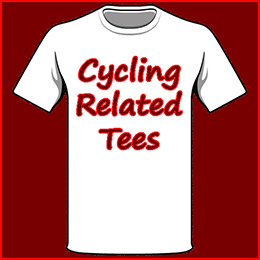The Generation Blame Game
 Sun, September 12, 2021
Sun, September 12, 2021  Me on the right aged 18. circa 1954Did you know the term “Whipper-Snapper” dates back to the late 1600s? It originally referred to a young person who would stand on the street and crack a whip to make noise and draw attention to themselves.
Me on the right aged 18. circa 1954Did you know the term “Whipper-Snapper” dates back to the late 1600s? It originally referred to a young person who would stand on the street and crack a whip to make noise and draw attention to themselves.
A sure sign a person is old is if they still call someone a “Young Whipper-Snapper,” because in over 300 years they haven’t learned a better term.
Today’s youth would probably holler out of the widow of a limousine on the way to a school prom, and I would think, “You are in a fucking limousine, you didn’t just win the Super-bowl.”
The result is the same for every generation, make a lot of noise, but have nothing of substance to show. Looking back, was I any different? Of course not, how much life can one experience in just ten years from age 15 to 25?
I believe it was Mark Twain who said,
“When I was fifteen, I thought my father was an idiot. By the time I reached thirty, I was amazed how much he had learned in 15 years.”
I was born in the middle of the Great Depression, and I was between 3 and 9 years old during WWII. I became a teen in the 1950s, and we were pleased the world was a better place. We never blamed the previous generation; in fact, they had just fought a war for us. It was the 1960s with the Civil Rights issues, Vietnam, and the threat of nuclear war, that the blame game started.
The blame lies with mankind collectively, not individuals or even whole generations. Each generation would have done better to have listened to the previous generation, rather than to blame them. This generation will fare no better unless the change what previous generations have done. One never gets a different result by making the same mistake over.
The older generation probably looked at me and my peers and thought, “God help us when they are in charge.” By the time I was 25 years-old, I thought I knew it all, and I had the answers to all the world’s problems, when truth be known, we none of us knew Jack-Shit.
Since the Industrial Revolution began about 300 years ago, technology has increased at an ever-increasing rate. I look at the advances made in just my lifetime, and it is alarming. This advancement in technology has gone hand with a population explosion, the worlds population has doubled in the last 50 years. No one seems to be addressing that problem, as the planet is being destroyed.
Technology increases as knowledge is passed on from one generation to the next, but schools still teach the basic reading, writing, and arithmetic, that began in schools 300 years ago. Religion too is a hodge-podge of different religions the world over, and all based on writings hundreds, if not thousands of years old.
Young people leaving college today are attending classes on “How to cope.” Their parents gave then everything, and sent them to college, now they have graduated the parents expect them to leave home and get a job. They don’t have the basic skills needed to cope. I grew up poor, and left home at nineteen years old. Life showed me how to cope.
I am sure when I was young, I spouted my mouth off about all manner of subjects I knew nothing about. But it only reached my immediate friends, and I doubt much of it went any further. Today, technology has given us the Internet, Facebook, Twitter, You-Tube, and Tic-Toc. The list goes on. Someone can have some inane thought and within days that idea has spread around the world.
We no longer have to wait and say, “God help us when they take over?” Because the young generation is taking over now, through Social Medea. Killing free speech, erasing history, when if there is one lesson I have learned in life, it is. “Don’t dwell on the past, let it go and move on, because no matter how hard you try, the past will never improve.”
"True wisdom lies not in what you know, but in knowing that you can never know everything."
And how can anyone learn that in just ten short years.



















Reader Comments (1)
I heard an interview with Neil DeGrasse Tyson in which he made a very good point about why there is such a drastic generational divide that will continue growing. He said that since the end of the Second World War, societal change started hyper-accelerating within single generations due to technological, education, medical, and prosperity leaps after the war. He pointed out that for most of human history, these types of leaps happened maybe once a century, and for the most part, you lived the same life your parents and grandparents lived so you listened more to older people because they had useful information that improved your odds of living better. After the war, young people thanks to prosperity and access to education beyond most of their parents' means, were living in a world as young adults that their parents had no experiential knowledge about and were going off to types of careers and leading lives that were very different than the world of jobs and lives that even the previous generation knew. Older people began having what was seen by the young as less useful information about navigating a world that now would start changing within single decades for the next seventy years. As what usually happens, the baby got thrown out with the bathwater, and all the basic life knowledge that still applied also started getting ignored by the young.